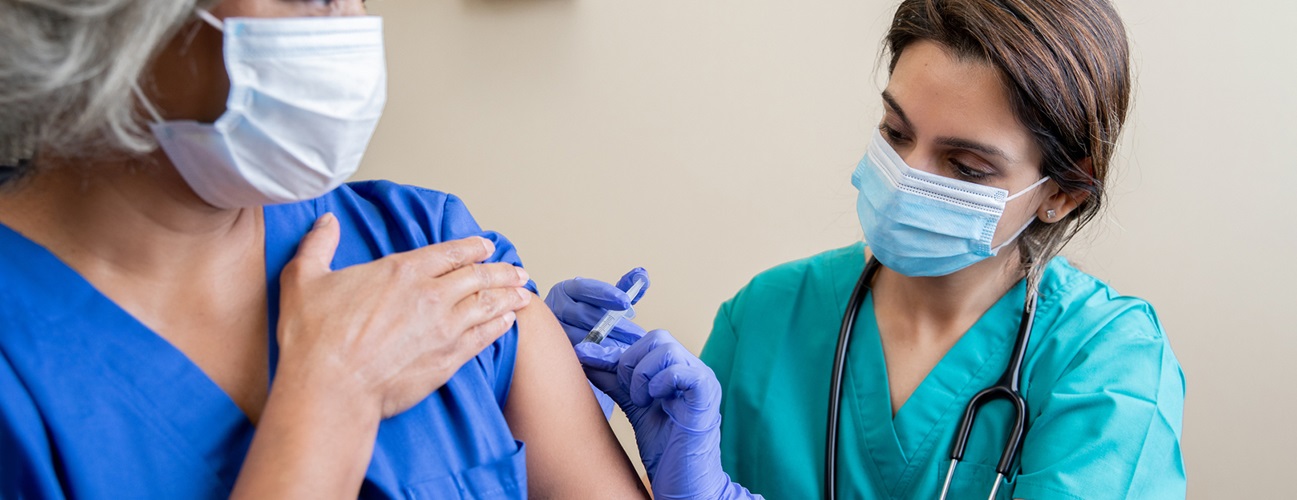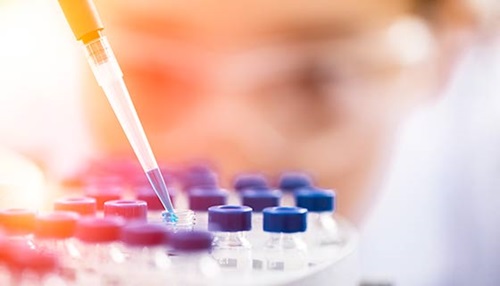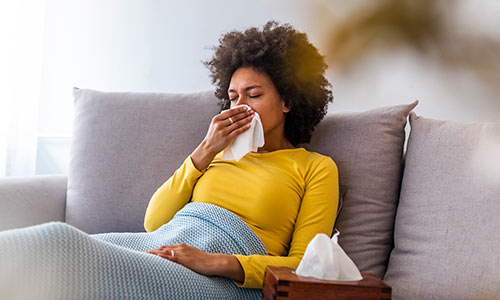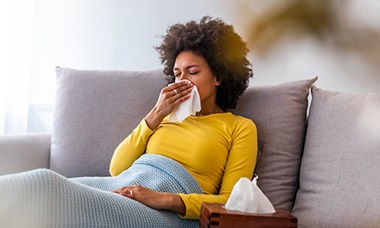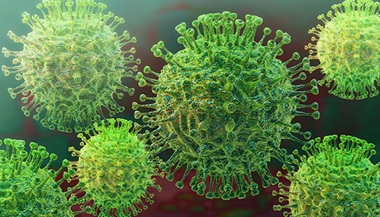COVID-19 Vaccines and People of Color
Featured Expert:
The U.S. Food and Drug Administration has fully approved two vaccines to protect against COVID-19, and vaccinations of the public have begun.
People of color might have particular concerns about the vaccines’ safety and effectiveness. Although Black, Hispanic, Native American and other people of color are overrepresented in severe coronavirus disease, vaccine hesitancy among these groups and others can complicate the decision about whether to be vaccinated.
Sherita Golden, M.D., M.H.S., vice president and chief diversity officer at Johns Hopkins Medicine, offers insights on the coronavirus vaccines and what people of color should know about the COVID-19 vaccines.
Can we trust information about the COVID-19 vaccine?
“People of color, along with immigrants and differently-abled men and women have endured centuries of having their trust violated. We need to give people the facts about the vaccine’s safety and efficacy, and renew their trust toward health care in general,” Golden says. “It’s incumbent on health care organizations and leaders to help repair and restore that relationship.”
Golden says one way health care organizations can rebuild confidence is by working strategically with local elected officials, community leaders and religious leaders to convey accurate and essential health messages, including information about the COVID-19 vaccine.
Here are her answers to some of the questions she is hearing from those considering COVID-19 vaccination.
Were the COVID-19 vaccines developed too fast to be safe?
“No,” Golden says. “Although people are understandably concerned about how quickly these vaccines were brought to market, and despite the name ‘Warp Speed,’ we know that there were large trials that were conducted correctly. They did not cut corners. Read more about vaccine safety.
Does the COVID-19 vaccine change my DNA?
“No,” Golden says. “The vaccines do not affect the nucleus of the cells, where the DNA resides. The technologies are not new.
“Dr. Kizzmekia Corbett helped developed the vaccines,” Golden adds, referring to the African American viral immunologist at the National Institutes of Health. She adds that other leaders from communities of color volunteered to take part in the tests, noting, “Dr. Freeman Hrabowski III, president of the University of Maryland, Baltimore County, was a clinical trial participant.”
Read more about the safety of the coronavirus vaccines.
Demographics of the COVID-19 Vaccine Trials
Sherita Golden, M.D., M.H.S., vice president and chief diversity officer for Johns Hopkins Medicine, discusses the demographic makeup of the Pfizer and Moderna COVID-19 vaccine trials.
Was there enough participant diversity in testing the COVID-19 vaccine?
“People of color were represented,” Golden says. “COVID-19 is affecting everyone, so clinical trials sought to ensure their participants reflected that.
“When Pfizer tested their COVID-19 vaccine, 10% of their study participants were Black or African American people recruited from the United States — about 4,000,” she says. “Hispanic or Latinx people accounted for 26% of the study’s participants (about 11,000). Five percent of the participants were Asian. People age 56 and older made up 46% of the volunteers.
“In the Moderna group of over 30,000 participants, we know that 10% of them were African Americans, 20% were Hispanic or Latinx, and 5% were Asian.” Moderna’s volunteers also comprised older adults, with one-quarter of the participants age 65 or older.
Participants’ underlying health and profession were also tracked: 35% of Moderna’s study subjects were living with chronic health problems, including heart, lung or liver disease. About 22% were health care workers, and another 7% — about 2,000 women and men — were retail, restaurant or hospitality workers.
The U.S. test participants for Johnson & Johnson’s one-shot COVID-19 vaccine were 15% Hispanic/Latinx; 13% Black/African American; 6% Asian and 1% Native American.
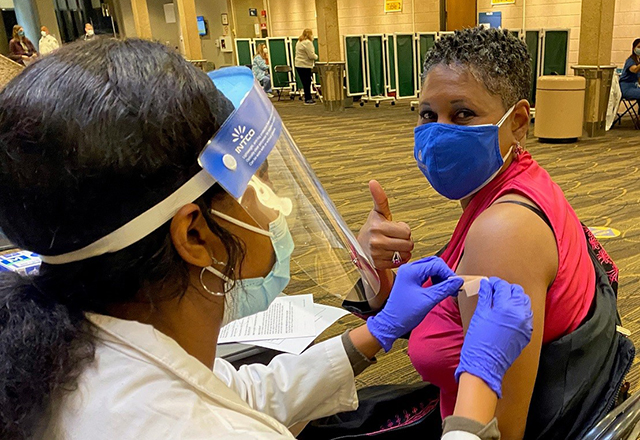
Dr. Golden getting her COVID-19 vaccination at The Johns Hopkins Hospital.
What is vaccine hesitancy?
Although vaccines save lives, vaccine hesitancy — a tendency to avoid or put off getting a vaccine — affects all demographics, especially when a new vaccine enters the market.
Institutional racism and historical inequities in health care may also play a role in vaccine hesitancy among African Americans and other people of color. Incidents of the medical establishment endangering the health or betraying the trust of Black patients and research participants have complicated the relationship between the medical establishment and these communities. A historic lack of diversity among health care practitioners and substandard services and care afforded to patients living with poverty can create enduring negative experiences with medical care.
Vaccine hesitancy among some groups can result from fears that a family member’s immigration status will be under scrutiny, or that the costs of receiving a COVID-19 vaccine will be too expensive. (There is no charge for receiving the COVID-19 vaccines at this time.)
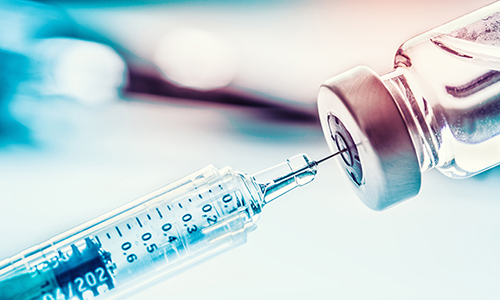
COVID-19 Vaccine
Are there special reasons for people of color to get vaccinated to prevent COVID-19?
Yes. The coronavirus pandemic has decimated communities of color, which are overrepresented in front-line, essential jobs, and vulnerable to risk factors that can make COVID-19 worse. Together with mask-wearing, physical distancing, hand hygiene and other coronavirus precautions, getting vaccinated can help keep you safe until the COVID-19 pandemic begins to ease.
Golden is optimistic. “Communities will come around, but it will take patience as people deal with their reality and begin to see others taking part in COVID-19 vaccinations,” she says.
But, at the same time, waiting is risky as COVID-19 and new coronavirus variants continue to spread. “I’m more concerned about long-term effects from COVID-19, which can be severe. Even though we don’t know everything about these new vaccines yet, I’d rather risk the unknown of the vaccines than what we know can happen with COVID-19.
“Don’t delay,” she advises those considering COVID-19 vaccination. “We need herd immunity, and your protection cannot wait.”
